
Smart health
new challenges ahead
Insights into the 2022 Smart Health customer workshop
On 15 June and 16 June 2022, ITEA organised its 8th international customer workshop in Eindhoven and this year it focused on Smart health, an important challenge of ITEA. The workshop was co-organised with Atos, Barco, Esri Canada, NXP and Philips and luckily it was possible again to organise it as a physical workshop, with some of the customers joining remotely. The event gathered 16 end users of Smart health solutions representing the point of view of the customers and around 20 solutions providers - large companies, SMEs and research organisations – of the Smart health sector.
| Customer | Industry | SME/Research institute |
|---|---|---|
| Academic Medical Center of the University of Amsterdam (NLD) | Atos (ESP) | BeWell Innovations (BEL) |
| Az Damiaan (BEL) | Barco (BEL) | imec (BEL) |
| AZ Groeninge (BEL) | Demcon (NLD) | KnowL solutions group (NLD) |
| Charité - Universitätsmedizin Berlin (GER) | Esri Canada (CAN) | Macadamian Technologies ULC (CAN) |
| Inspire2Live (NLD) | Materialise (BEL) | Medirex Systems Inc. (CAN) |
| Kempenhaeghe (NLD) | NXP (BEL) | My Viva Inc. (CAN) |
| Lapland University of Applied Sciences (FIN) | Philips (NLD) | NewCompliance IT (NLD) |
| Leiden University Medical Center (NLD) | Televic Healthcare (BEL) | Noldus Information Technology (NLD) |
| Maastricht University - (NLD) | Thermo Fisher (NLD) | Rehabtronics Inc. (CAN) |
| Maxima Medical Center (NLD) | Sirris (BEL) | |
| National eHealth Living Lab (NLD) | Sopheon (NLD) | |
| Radboudumc (NLD)) | Thunderbyte.AI (NLD) | |
| Tampere University (FIN) | ||
| University of Castilla-La Mancha (ESP)) | ||
| University Medical Center Groningen - University of Groningen (NLD) | ||
| UMC Utrecht (NLD) |
Smart health, a key challenge for ITEA
This event was the second Smart health customer workshop organised by ITEA, the first one being held in Berlin in June 2016. We decided to address the Smart health challenge once more for several reasons.
First, the health sector is a very important economic sector for Western countries. It represents close to 10% of GDP and its share in the economy is increasing. Compared to 50 years ago, when it represented around 5% of GDP, this is a tremendous growth and we hope that our economies will continue to produce enough wealth to sustain this rising trend.
Second, everyone is interested in the progress in the healthcare sector. We and our relatives are potential beneficiaries of any improvements that can be developed to provide better healthcare. There is a strong aspiration for new solutions that will be widely accessible.
Third, it is the right time to discuss how some technological evolutions can impact healthcare. We see that more and more new sensors are available and we have also progressed strongly in communication and endpoint devices with the development of smartphones and the related networks. This offers new opportunities for healthcare solutions. Artificial Intelligence is also an impactful technology for Smart health and has already been involved in this for several years, so we can assess the first lessons learnt from the use of AI in healthcare. The COVID-19 pandemic has also been a challenge for the healthcare industry and we can learn from this difficult experience to prepare future solutions.
For these different reasons, the choice of Smart health for the annual customer workshop was natural to ITEA. The Organisation Committee put in place to prepare the event (with the participation of Atos, Barco, Esri Canada, NXP and Philips) decided to select five topics to focus on in the workshop. This selection was made knowing that a two-day workshop would be unable to address the whole field of Smart health and that other topics such as new business models or drug discovery would require a different panel of participants. However, the selected topics already covered a large spectrum of research challenges for which software innovation can be a game changer.
The workshop focused on:
-
Telehealth, remote interaction with
patients/healthcare staff, patient
monitoring at home, virtual care:
How to benefit from new means of communication, sensors and virtual reality to interact with patients remotely? What are the challenges of delivering good care without the patient having to come to the hospital? - Hospital optimisation: capacity
monitoring, resource management,
more patient-centric:
What are the needs in hospitals and how can IT contribute to increasing the quality and productivity of caregivers at the hospital? - Systems for digital pathology:
How can pathology be improved thanks to new IT systems? In which areas could these technologies (data processing, robotics, advanced reality) better support current human activities? How to introduce these technologies to the benefit of patients and medical staff? - Moving from care to prevention and
more personalised healthcare:
How can personal data (genomics, sensor data) help to prevent potential diseases and how to adapt care to each individual? What are the current barriers and challenges when moving in this direction? - Data exploitation (with a good
balance of ethical and privacy
concerns):
How to exploit the new data sources related to healthcare? What are the opportunities (for care, for research and for economical optimisation) and the challenges? How to limit the security and privacy risks?
The first two topics cover the different places where care is provided to patients. In both cases, software innovations can provide a means to either optimise existing processes or support new solutions. The third topic focuses on helping caregivers with their diagnostics. The fourth targets new solutions to develop a healthy lifestyle to prevent diseases. The last one is more transversal as data is everywhere and is therefore already central to the first four topics. It was selected to enable a discussion on generic problems related to data exploitation, such as data quality, data selection, privacy or upscaling.
Smart Health customer workshop
The first day of the workshop started with a keynote speech on Smart health trends and challenges by Henk Marquering, Prof. Radiology, ip Translational AI at Amsterdam UMC, and a video message by Olivier Vanovermeire, CMO Barco and Radiologist at AZ Groeninge.
Afterwards, the sessions were dedicated to listening to the end-users and to building a common vision of the most important and interesting challenges in Smart health. For each of the five selected topics, a roundtable was organised with panellists from hospitals or research organisations linked to hospitals or national health initiatives. During these sessions, the speakers had the opportunity to present experiences, their views on the challenges and the problems that they would like to see solved. These presentations were followed by a discussion between the panellists and all of the other participants. This resulted in some very lively discussions, enabling each participant to better see what the problems are in moving forward in the development of Smart health.
At the end of the day, all of the participants had the opportunity to visit the Philips Customer Experience Center. This centre showcases many technologies developed by Philips that are currently used in hospitals or at home or that will soon be available. Some of them are related to ITEA projects and one of the participating SMEs that provided one of the demonstrated solutions in this centre explained more about it to the workshop participants, including how they managed to become a partner of Philips.
The second day focused on the emergence of new ideas for collaborative research projects that can address the challenges highlighted during the first day. Four parallel brainstorming sessions were set up with around ten participants in each group. The discussions were again very lively with a lot of interaction between end-users and technology providers. To conclude the workshop, a plenary session allowed each group to provide a report and all of the participants gained a global vision of all of the exchanges and the opportunity to comment on the proposed ideas and indicate their potential interest in involvement in the next steps.

After all of these sessions, the workshop produced 15 interesting ideas that may give birth to future ITEA research projects. The levels of maturity of all of the ideas are not yet equal but we expect that the upcoming ITEA Project Outline Preparation Days, taking place on 13-14 September in Helsinki, will help each of them to be further developed to become ITEA projects.
In addition to the emergence of these solid ideas and some collaborations, the workshop has helped to progress towards a shared vision of the research priorities to address the important transformation underway in the Smart health sector. The participants have developed new connections that will be important as no single player can tackle the current challenges alone. In conclusion, this workshop was very valuable to fostering ITEA activity in the healthcare sector. This was confirmed by the attendees:
“Very nice workshop and I think everyone agreed that it is time to move to the next level of using advanced IT tools in hospitals. Patient-centric diagnostics but also improved hospital efficiency calls for tools which can convert the huge amount of data into insightful information using smart tools. It is time for hospital 4.0.”
Associate Professor at Leiden University Medical Center - the Netherlands
“From a user point of view, it was enlightening and inspiring to have discussions with technology providers about new approaches to deal with current problems in healthcare.”
Prof. Radiology, ip Translational AI at Amsterdam UMC - the Netherlands
“It was a pleasure to be a part of the Smart health meeting in Eindhoven. Being able to bring customers, healthcare providers, industry leaders in technology and innovators from various countries together to discuss and strategise how technology can help solve issues within healthcare was invigorating! We have the talent across the globe to solve the issues we face in healthcare and it’s through collaborations such as ITEA that breakthroughs will happen.”
CEO at My Viva Inc - Canada
A full report on the Smart health customer workshop can be downloaded from mid-August via the ITEA Call 2022 project idea tool.

Other chapters
Use the arrows to view more chapters
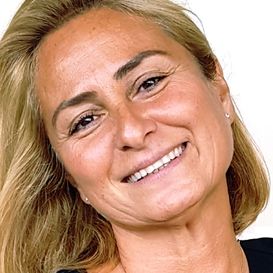
Editorial
By Zeynep Sarılar
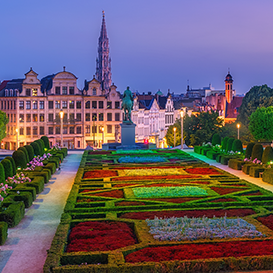
Country Focus: Belgium
Creating jobs through innovation
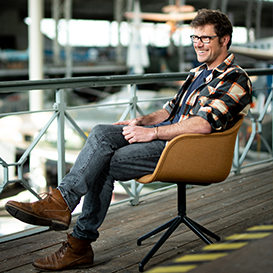
FEops
Becoming a truly global player

ITEA Success story: MOS2S
New forms of engagement in entertainment and society
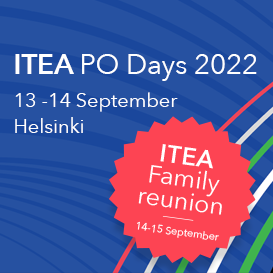
ITEA PO Days 2022 & ITEA Family reunion
The ITEA Community is coming together again!
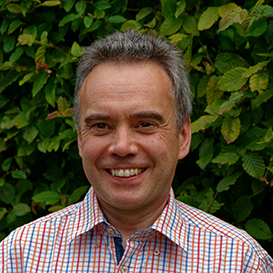
Community talk with Olivier Biot
An internationalist in body and soul
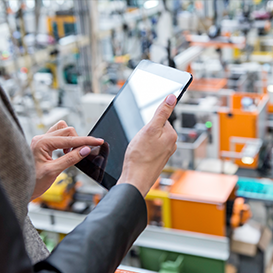
ITEA Success story: ENTOC
The next stage in virtual engineering and commissioning
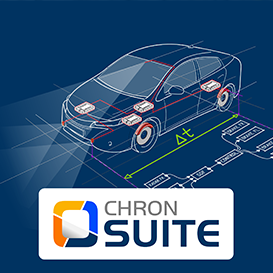
SME in the spotlight: INCHRON
A passion for finding the right timing
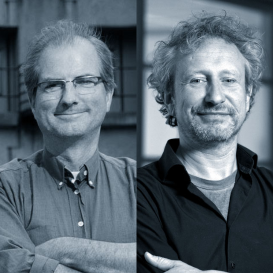
By and for end-users
Improving quality of life for patients and professionals alike
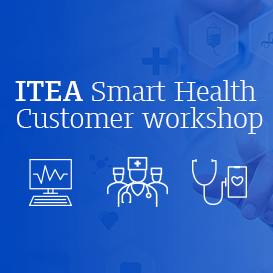
Smart health – new challenges ahead!
Insights into the 2022 Smart health customer workshop
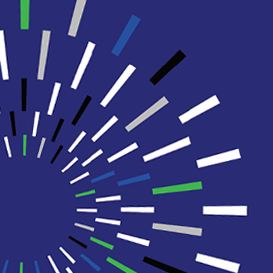
Introducing the ITEA Call 2021 projects
A promising start!
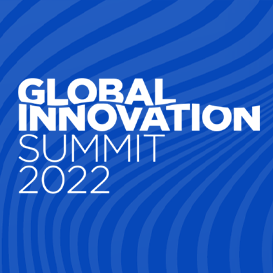
Global Innovation Summit 2022
Good to meet again, in-person and online

